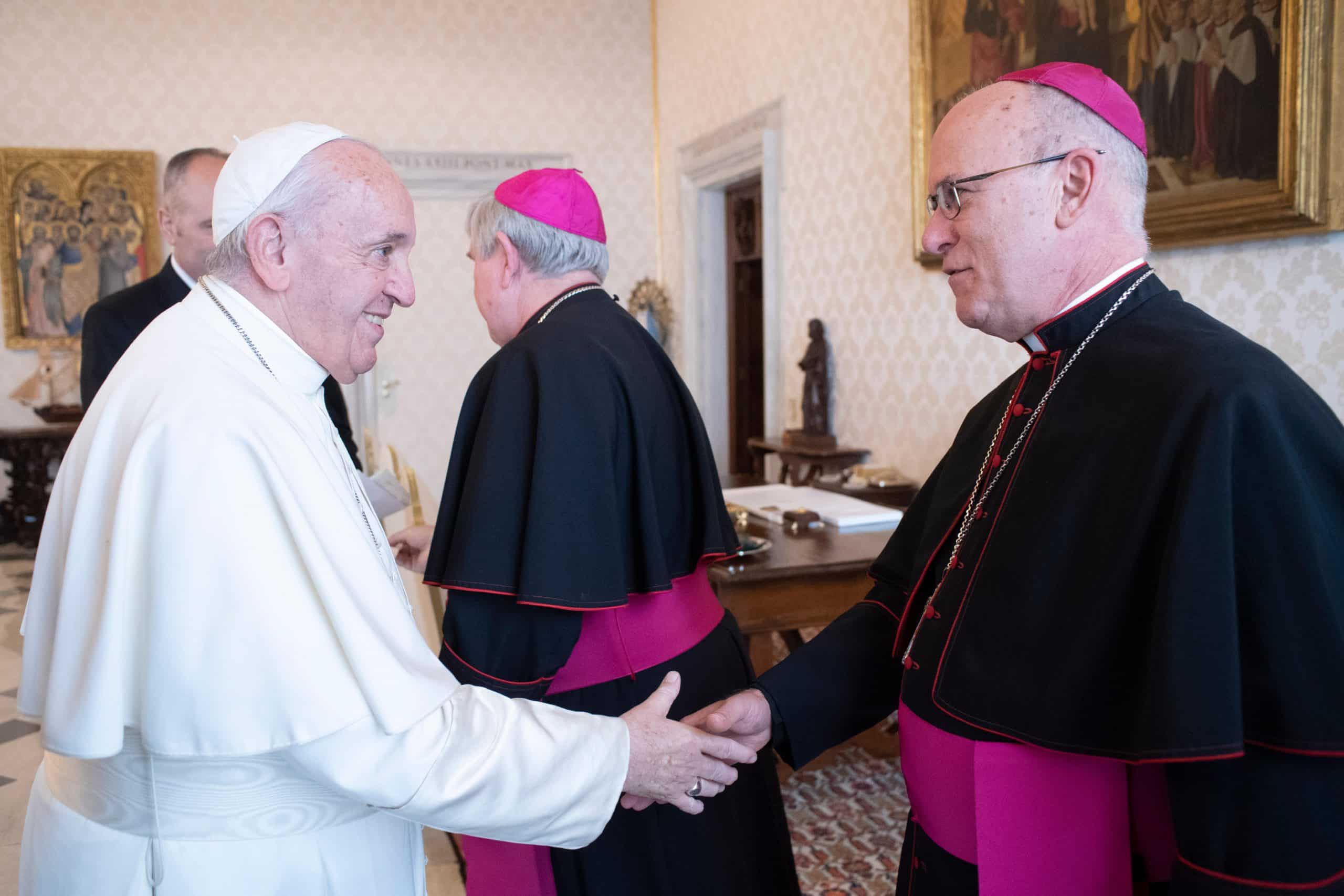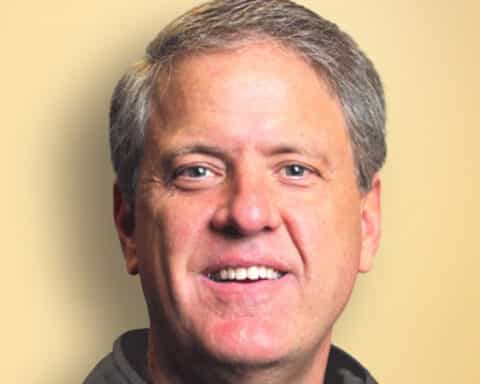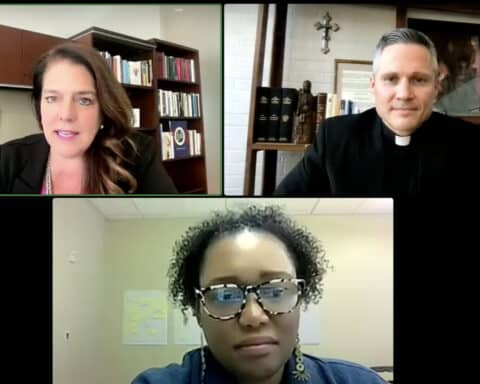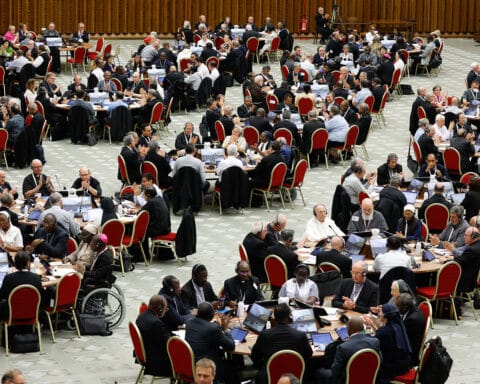WASHINGTON (CNS) — Creating national norms was never the intent behind a proposal to write a new statement on the Eucharist, said Bishop Kevin C. Rhoades of Fort Wayne-South Bend, Indiana, chairman of the U.S. bishops’ Committee on Doctrine.
“We proposed a national policy for applying Canons 915 and 916, the doctrinal theology behind those canons,” Bishops Rhoades said in response to a question posed during a news conference June 16 following the first day of the U.S. bishops’ June 16-18 spring meeting, which — like last November’s bishops’ meeting — was being held entirely online.
“We meant national guidance. We weren’t talking about creating norms, but kind of giving guidance to the bishops,” the bishop said. The two canons he mentioned govern one’s worthiness to approach for Communion and eligibility to receive the sacrament.
Bishops Rhoades referenced points made in a May 7 letter that Cardinal Luis Ladaria, prefect of the Congregation for the Doctrine of the Faith at the Vatican, sent to Archbishop José H. Gomez of Los Angeles, president of the U.S. Conference of Catholic Bishops.
The cardinal had urged the U.S. bishops to proceed with caution in their discussions about formulating a national policy “to address the situation of Catholics in public office who support legislation allowing abortion, euthanasia or other moral evils.”
The proposal before the U.S. bishops asks them to approve the drafting of a teaching document by the doctrine committee on the “meaning of the Eucharist in the life of the church.” If it is OK’d June 17, the document would be drafted for the bishops’ consideration in time for their in-person November meeting.
More focus has been given to the drafting proposal because of speculation in the media that one norm in such a document would permit the denial of the Eucharist to Catholic politicians who support legal abortion, and that it would be aimed at President Joe Biden, the nation’s second Catholic president, in particular.
Bishop Rhoades said the caution on developing any national policy or norms came out of the Congregation for the Doctrine of the Faith during the U.S. bishops’ recent “ad limina” visits to Rome.
In his May 7 letter, Cardinal Ladaria reiterated what he said he had told several groups of U.S. bishops during these 2019-2020 visits, namely that “the effective development of a policy in this area requires that dialogue occurs in two stages: first among the bishops themselves, and then between bishops and Catholic pro-choice politicians within their jurisdictions.”
The letter “led us to think, well, we really don’t have the competence or the authority for creating norms,” Bishop Rhoades said. “What we do intend to do, and what is central to this, is to look at the doctrine, the theology behind this. And that’s what we still intend to do.”
When the bishops’ assembly opened, a motion to approve the meeting’s agenda, usually a formality, prompted a lengthy debate over an additional motion, which eventually failed, to add time to the June 17 debate over the drafting of the Communion document so as many bishops’ voices as possible could be heard on the issue.
“We have taught in years past about Catholics in political life, the importance of adherence to church teaching in the document on worthiness to receive holy Communion, back in 2006,” Bishop Rhoades said. “But with this new strategic plan that’s going to be focused on the Eucharist, this three-year plan, we have to teach this again, on different levels.”
He was referring to a multiyear National Eucharistic Revival initiative that is part of the USCCB’s 2021-2024 strategic plan, “Created Anew by the Body and Blood of Christ: Source of Our Healing and Hope.” Planning for the National Eucharistic Revival has been taking place for over a year.
The bishops were scheduled to hear an update on the project June 18, the last day of their meeting, from Auxiliary Bishop Andrew H. Cozzens of St. Paul and Minneapolis, chairman of the evangelization committee.
Bishop Rhoades cited a 2019 poll that found a decline in Catholic belief in the real presence of Christ in the Eucharist. “We want to reignite that faith and help catechize people to the truth of that. But it has to be the whole truth,” he said.
It’s “part faith in the Eucharist” but also “the call to live the Eucharist — that’s where consistency comes in,” Bishop Rhoades said. “How can you do so without living … being in communion with the faith of the church? That’s eucharistic consistency. You can’t do a full treatment of the Eucharist without talking about that, without teaching about that.”
Bishop Rhoades said the terms “eucharistic consistency” and “eucharistic coherence” originate in Pope Benedict XVI’s 2007 exhortation on the Eucharist, “Sacramentum Caritatis” (“The Sacrament of Charity”).





